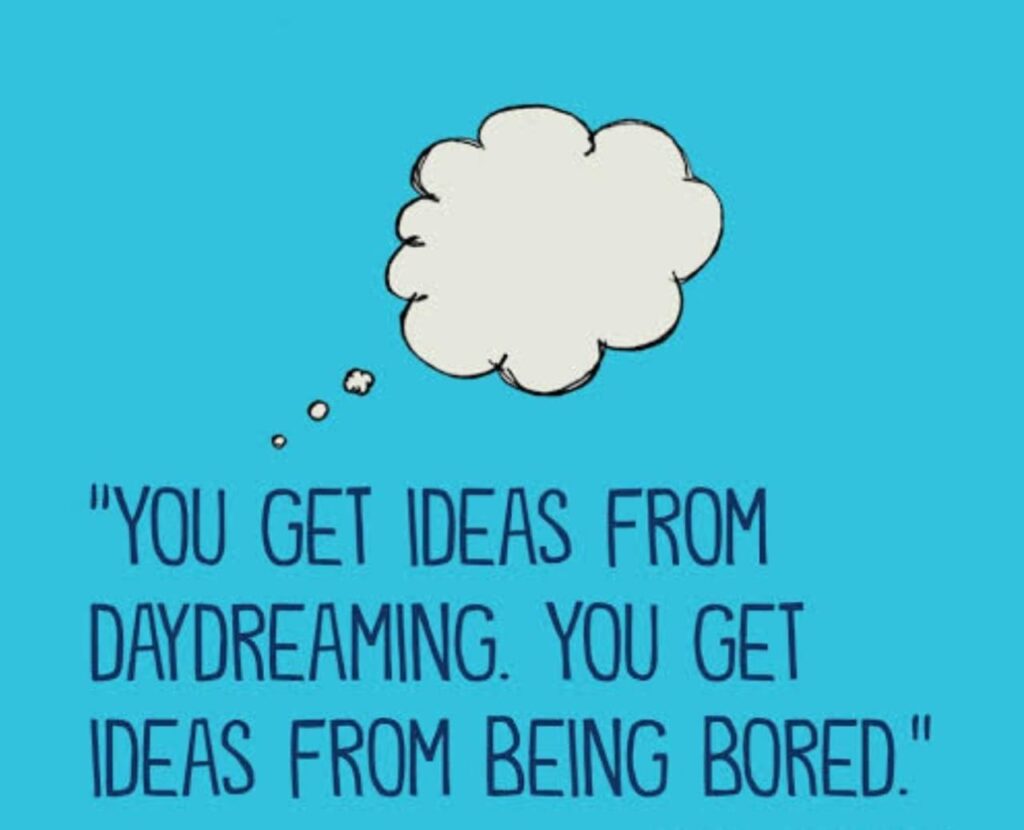20th July 2024
Blaise Pascal said, “All of humanity’s problems stem from man’s inability to sit quietly in a room alone.”
How many times do you utter the phrase, “I am getting bored.”
We often hear children say, “It’s really boring – I have nothing to do – I am bored.”
My immediate response to that is, “So what – Allow yourself to get bored.”
Have you ever tried to figure out a problem, and then after taking a long shower or a nap, the answer felt like it was right in front of you?
Sometimes giving yourself some space to be bored and to do nothing frees up your brain to find new solutions or make connections that you couldn’t make, with so much on your mind.
Boredom when done right, with no distractions, gives your brain a chance to wander.
You might notice new things that you’ve missed before, or reflect on what’s going on. Using your imagination in moments of boredom can help you think in ways you don’t normally, which can help boost creativity.
Hence, if you’re waiting for brilliance to strike, try getting bored first.
That’s also the key takeaway of a study published recently in the journal Academy of Management Discoveries, which found that boredom can spark individual productivity and creativity.
In the study, people who had gone through a boredom-inducing task — methodically sorting a bowl of beans by color, one by one — later performed better on an idea-generating task than peers who first completed an interesting craft activity. (The task: to come up with excuses for being late that wouldn’t make someone look bad.) The bored folks outperformed the artists both in terms of idea quantity and quality, as ranked by objective outsiders who assigned uniqueness scores to each one.
Boredom is often the fertile ground from which creativity sprouts. When we allow ourselves to be bored, our minds are free from the constant demands and distractions that modern life imposes. This mental space provides an opportunity for unstructured thinking, allowing new and unexpected ideas to emerge.
When we give ourselves time to rest and do nothing, it gives our brains a chance to process and encode what’s going on. It takes a lot of cognitive power to go through day to day life, and giving your brain a break lets it play catch up.
Learning how to be bored is a skill that many of us have forgotten about, or didn’t learn in the first place. We have screens with us almost constantly now, so it’s really easy to avoid boredom by finding somewhere to scroll. Letting yourself be bored gives you a chance to exercise a little self-control instead of opting for mindless distraction.
Getting yourself comfortable with the uncomfortable feeling of boredom is an important skill. There are lots of uncomfortable emotions out there that we can’t avoid.
Learning how to regulate yourself emotionally during those moments is a skill that you can rely on in the future, no matter what comes your way.
Next time you find yourself in line at the grocery store, in a tedious meeting or killing time in a waiting room, resist the urge to scroll.
You’re bound to get bored — and your brain, mood and work performance just might improve.
Nassim Taleb says, “My only measure of success is how much time you have to kill.”
More than a measure of success, I think it’s a key ingredient. The most efficient calendar in the world – one where every minute is packed with productivity – comes at the expense of curious wandering and uninterrupted thinking, which eventually becomes the biggest contributors of success.”
This weekend, allow yourself to get bored, build slack, enjoy your free time and stay blessed forever.

